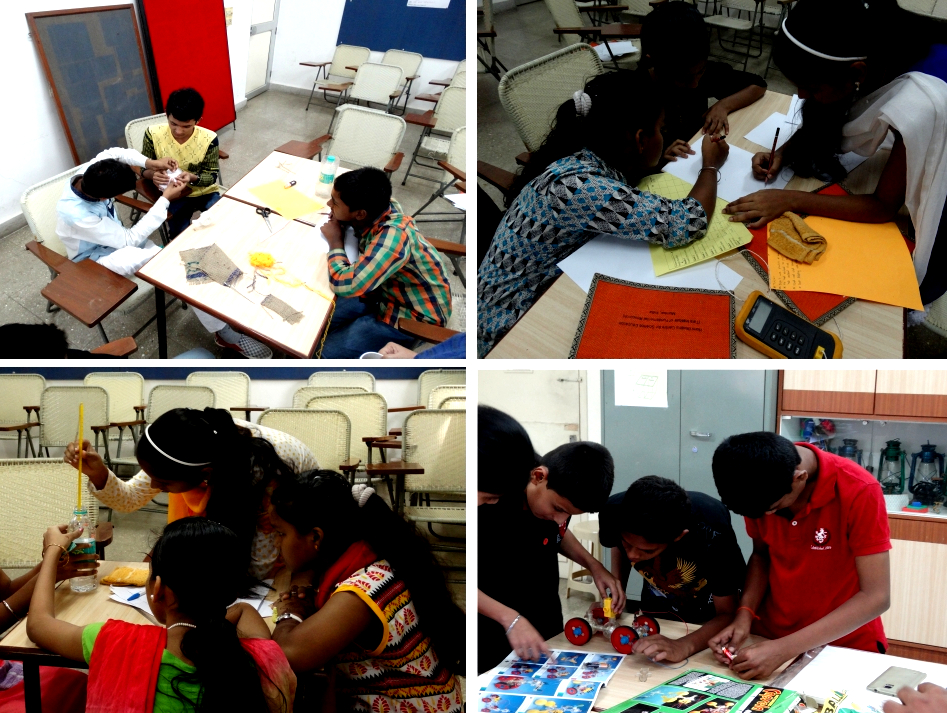The Design and Technology (D&T) Education research at HBCSE is guided by (theoretical) issues of collaborative design, cognition and action, and concerns about the development of language, quantitative and problem solving skills among school students. It is carried out through collaborative participation of school students in design, making and evaluation of need-based artefacts and systems. The activities would integrate aspects of affect (wants, desires and aesthetics) and judgements (making strategic alliances, choosing materials and evaluating products). We engage school students in using knowledge, skills (thinking, manual, procedural, artistic, social, etc.) and values (aesthetic, social) through structured design and making tasks.

Design and technology education (D&T) aims to enable learners with the self-belief and attitude of problem solvers. D&T is about ‘learning by doing’ that involves students in designing solutions to simple (e.g. designing a school bag) and complex (e.g. designing a windmill to lift a given load) problems that are relevant to their lived world. In the process of devising possible solutions students are encouraged to think, be creative, imaginative, innovative and flexible. They may draw on knowledge from multiple disciplines – science, maths, social sciences, fine arts and crafts etc., in addition to being attentive to relevant socio-scientific contexts, cultures and value-systems. D&T units designed here recognises that craft and design activities can help build students’ abilities in visuospatial thinking besides having several other cognitive benefits cutting across school subjects and realises that technological activity is more than application of scientific principles. The D&T programme also acknowledges that values and socio-cultural aspects are integral to discussion on technology and addresses issues at the interface of science, technology and society.
Our focus on the technology aspects in D&T can be considered as components of the broader areas of Educational Technology and Science-Technology-Society (STS) studies. This includes exploring various aspects of technology and their possible impacts on human life and the environment.
